 W
WCharles Henry Ambler was an American historian, teacher, professor and civil servant. As a historian he was an accomplished writer of Virginia and West Virginia history, publishing many works on those subjects. Ambler is noted for his expertise on the American Civil War in how it brought about the formation of West Virginia. He was also noted for his approach in applying modern research techniques in the study of West Virginia's history, and was complimented by his contemporaries of belonging to the "modern school of historians". During his career as a historian and professor Ambler had authored and published numerous works on Colonial Virginia, the states of Virginia and West Virginia before and during the American Civil War, along with publications about the colonial move westward.
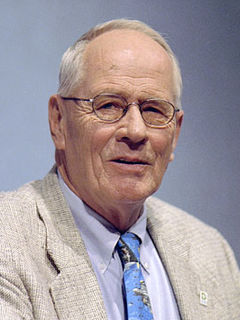 W
WStephen Edward Ambrose was an American historian and biographer of U.S. Presidents Dwight D. Eisenhower and Richard Nixon. He was a longtime professor of history at the University of New Orleans and the author of many bestselling volumes of American popular history.
 W
WEdward Lynn "Ed" Ayers is an American historian, professor, administrator, and university president. In July 2013, he was awarded the National Humanities Medal by President Barack Obama at a White House ceremony for Ayers's commitment “to making our history as widely available and accessible as possible." He served as the president of the Organization of American Historians in 2017–18.
 W
WJohn Badger Bachelder was a portrait and landscape painter, lithographer, and photographer, but best known as the preeminent 19th-century historian of the Battle of Gettysburg in the American Civil War. He was a dominant factor in the preservation and memorialization of the Gettysburg Battlefield in the latter part of the century.
 W
WWilliam Bartelt, often referred to as Bill Bartelt, is an American historian and author based in Newburgh, Indiana. He is considered the greatest living scholar on Abraham Lincoln's youth in Indiana.
 W
WSamuel Penniman Bates (1827–1902) was an American educator, author, and historian. He is known for his reference works on the American Civil War, including his multi-volume History of Pennsylvania Volunteers, 1861–1865 which remains a frequently-used, preliminary research resource due to its narrative descriptions of unit activities and rosters of the regiments raised in the Commonwealth of Pennsylvania.
 W
WEdwin Cole Bearss was a historian of the American Civil War, tour guide, and United States Marine Corps veteran of World War II.
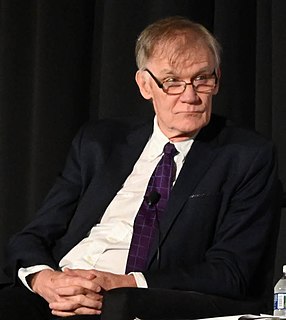 W
WDavid William Blight is the Sterling Professor of History, of African American Studies, and of American Studies and Director of the Gilder Lehrman Center for the Study of Slavery, Resistance, and Abolition at Yale University. Previously, Blight was a professor of History at Amherst College, where he taught for 13 years. He has won several awards, including the Bancroft Prize and Frederick Douglass Prize for Race and Reunion: The Civil War in American Memory, and the Pulitzer Prize and Lincoln Prize for Frederick Douglass: Prophet of Freedom. In 2021 he was elected to the American Philosophical Society.
 W
WRobert Vance Bruce was an American historian specializing in the American Civil War, who won the 1988 Pulitzer Prize for History for his book The Launching of Modern American Science, 1846–1876 (1987). After serving in the Army during World War II, Bruce graduated from the University of New Hampshire, where he earned his Bachelor of Science in mechanical engineering. He received his Master of Arts in history and his Doctor of Philosophy from Boston University, where he was later a professor. He also taught at the University of Bridgeport, Lawrence Academy at Groton, and the University of Wisconsin. Bruce was also a lecturer at the Fortenbaugh Lecture at Gettysburg College.
 W
WPaul Herman Buck was an American historian. He won the Pulitzer Prize for History in 1938 and became the first Provost of Harvard University in 1945.
 W
WRichard John Carwardine is a Welsh historian and academic. He specialises in American politics and religion in the era of the American Civil War.
 W
WCharles Bruce Catton was an American historian and journalist, known best for his books concerning the American Civil War. Known as a narrative historian, Catton specialized in popular history, featuring interesting characters and historical vignettes, in addition to the basic facts, dates, and analyses. His books were researched well and included footnotes. He won a Pulitzer Prize during 1954 for A Stillness at Appomattox, his study of the final campaign of the war in Virginia.
 W
WJoshua Lawrence Chamberlain was an American college professor from Maine who volunteered during the American Civil War to join the Union Army. He became a highly respected and decorated Union officer, reaching the rank of brigadier general. He is best known for his gallantry at the Battle of Gettysburg, for which he was awarded the Medal of Honor. Following the war, he served as Governor of Maine, and the President of Bowdoin College.
 W
WHenry Steele Commager (1902–1998) was an American historian. As one of the most active and prolific liberal intellectuals of his time, with 40 books and 700 essays and reviews, he helped define modern liberalism in the United States.
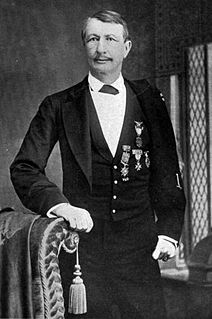 W
WJohn Watts de Peyster, Sr. was an American author on the art of war, philanthropist, and the Adjutant General of New York. He served in the New York State Militia during the Mexican–American War and American Civil War. He was one of the first military critics and noted for his histories of the Revolutionary and Civil Wars, and also published works of drama, poetry, military history, military biography and military criticism.
 W
WJohn William Draper was an English-born American scientist, philosopher, physician, chemist, historian and photographer. He is credited with producing the first clear photograph of a female face (1839–40) and the first detailed photograph of the moon in 1840. He was also the first president of the American Chemical Society (1876–77) and a founder of the New York University School of Medicine.
 W
WFrederick Henry Dyer served as a drummer boy in the Union Army during the American Civil War. After the war, he wrote A Compendium of the War of the Rebellion – a complete record of every regiment formed under the Union Army, their histories, and the battles they fought in – taking forty years to compile.
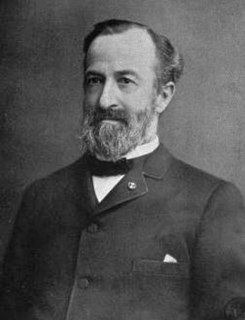 W
WWilliam Henry Egle was a physician, author and historian who served as the State Librarian of the Commonwealth of Pennsylvania from 1887 to 1889. A practicing physician at the dawn of the American Civil War, he was initially commissioned as an assistant surgeon, and then served as a surgeon with several different Union Army regiments during the course of the conflict, including the 116th Regiment Infantry, U.S. Colored Troops (USCT).
 W
WDavid John Eicher is an American editor, writer, and popularizer of astronomy and space. He has been editor-in-chief of Astronomy magazine since 2002. He is author, coauthor, or editor of 23 books on science and American history and is known for having founded a magazine on astronomical observing, Deep Sky Monthly, when he was a 15-year-old high school student.
 W
WBrigadier-General Clement Anselm Evans was a senior officer of the Confederate States Army who commanded infantry in the Eastern Theater of the American Civil War. Afterwards, he edited a 12-volume work on Confederate military history, so named, in 1899.
 W
WCatharine Drew Gilpin Faust is an American historian and was the 28th President of Harvard University, the first woman to serve in that role. Faust is the former dean of the Radcliffe Institute for Advanced Study; she was Harvard's first president since 1672 without an undergraduate or graduate degree from Harvard and the first to have been raised in the South.
 W
WShelby Dade Foote Jr. was an American writer, historian and journalist. Although he primarily viewed himself as a novelist, he is now best known for his authorship of The Civil War: A Narrative, a three-volume history of the American Civil War.
 W
WDouglas Southall Freeman was an American historian, biographer, newspaper editor, radio commentator, and author. He is best known for his multi-volume biographies of Robert E. Lee and George Washington, for both of which he was awarded Pulitzer Prizes.
 W
WMajor-General John Frederick Charles "Boney" Fuller was a senior British Army officer, military historian, and strategist, notable as an early theorist of modern armoured warfare, including categorising principles of warfare. With 45 books and many articles, he was a highly prolific author whose ideas reached army officers and the interested public. He explored the business of fighting, in terms of the relationship between warfare and social, political, and economic factors in the civilian sector. Fuller emphasised the potential of new weapons, especially tanks and aircraft, to stun a surprised enemy psychologically.
 W
WAllen Wilson Greene, also known as Will Greene, is an American historian, author, and retired museum director. Greene was the director of the Association for the Preservation of Civil War Sites. Later, he became director of Pamplin Historical Park and the National Museum of the Civil War Soldier in Petersburg, Virginia. He also served on the national oversight board for the Institute of Museum and Library Services Over the years, Greene has made ten appearances on C-SPAN.
 W
WPaddy Griffith was a British military theorist and historian, who authored numerous books in the field of War Studies. He was also a wargame designer for the UK Ministry of Defence, and a leading figure in the wargaming community.
 W
WAllen Carl Guelzo is an American historian who serves as Senior Research Scholar in the Council of the Humanities and Director of the Initiative on Politics and Statesmanship in the James Madison Program at Princeton University. He formerly was a professor of History at Gettysburg College.
 W
WMichael C. Hardy is an American historian and author of Civil War and western North Carolina books and articles.
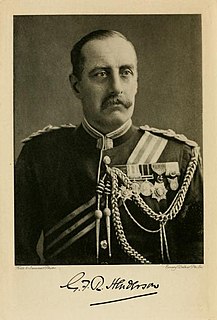 W
WColonel George Francis Robert Henderson, CB was a British soldier and military author.
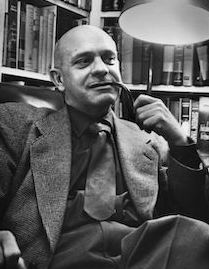 W
WWilliam Best Hesseltine was an American historian and politician who became the Socialist Party candidate for U.S. President in 1948. As a historian and professor at the University of Wisconsin–Madison for nearly three decades, Hesseltine's field of expertise was mid-19th century American history, especially the Civil War, Reconstruction Era and American South. He also became known as the mentor of a generation of American historians, many of whom also won prizes for their writing.
 W
WRuth Evelyn Hodge is an American archivist, author, educator, and community activist who has furthered the advancement of African-American and United States military history research and writing during the 20th and early 21st centuries. “African-Americans played a great part in building America,” she said during a newspaper interview in 2000. “The more people know, the better they understand and the better they get along.”
 W
WHarold Holzer is a scholar of Abraham Lincoln and the political culture of the American Civil War Era. He serves as director of Hunter College's Roosevelt House Public Policy Institute. Holzer previously spent twenty-three years as senior vice president for public affairs at The Metropolitan Museum of Art in New York before retiring in 2015.
 W
WJacqueline Jones is an American social historian. She held the Walter Prescott Webb Chair in History and Ideas from 2008 to 2017 and is Mastin Gentry White Professor of Southern History at the University of Texas at Austin. Her expertise is in American social history in addition to writing on economics, race, slavery, and class. She is a Macarthur Fellow, Bancroft Prize Winner, and has been a finalist for the Pulitzer Prize twice.
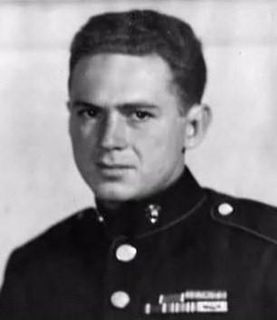 W
WRobert Leckie was a United States Marine and author of books on United States military history, sports, fiction, autobiographies, and children's books. As a young man, he served with the 1st Marine Division during World War II; his service as a machine gunner and a scout in the war greatly influenced his work.
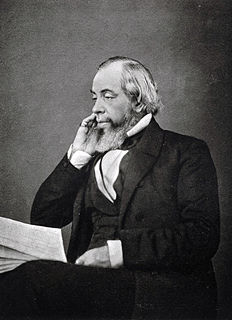 W
WBenson John Lossing was a prolific and popular American historian, known best for his illustrated books on the American Revolution and American Civil War and features in Harper's Magazine. He was a charter trustee of Vassar College.
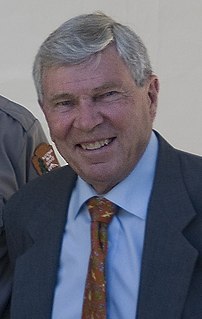 W
WJames M. "Jim" McPherson is an American Civil War historian, and is the George Henry Davis '86 Professor Emeritus of United States History at Princeton University. He received the 1989 Pulitzer Prize for Battle Cry of Freedom: The Civil War Era. McPherson was the president of the American Historical Association in 2003.
 W
WDavid Chambers Mearns was a librarian and scholar of Abraham Lincoln. He held multiple positions at the Library of Congress over 58 years of service, including director of the reference department, chief of the manuscript division, and Chair of American History. Mearns wrote the first authoritative book on the Library's collection of Lincoln's papers, along with twelve other books. Librarian of Congress Archibald MacLeish described Mearns as "the rarest treasure in the Library of Congress".
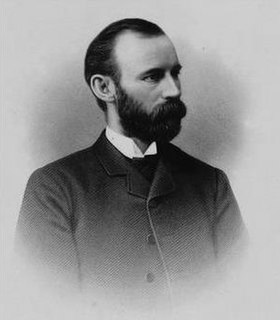 W
WMorton Luther Montgomery (1846–1933) was a native-born Pennsylvanian and Harvard-trained lawyer who became a respected military and public historian and author of more than a dozen books, lecture-related content and other materials documenting the history of the Commonwealth of Pennsylvania from its earliest days through the early part of the 20th century.
 W
WBeverley Bland Munford was an American lawyer, politician, social reformer, speaker, and author in Richmond, Virginia. He served six years in the Virginia House of Delegates and four years in the Virginia Senate. He wrote a book about the causes of the American Civil War.
 W
WScott Reynolds Nelson is the Georgia Athletics Association Professor of History at the University of Georgia. He was formerly the Legum Professor of History at the College of William and Mary. He is a historian of the American Civil War and the Gilded Age. He specializes in African-American history and Labor history.
 W
WJoseph Allan Nevins was an American historian and journalist, known for his extensive work on the history of the Civil War and his biographies of such figures as Grover Cleveland, Hamilton Fish, Henry Ford, and John D. Rockefeller, as well as his public service. He was a leading exponent of business history and oral history.
 W
WWhitelaw Reid was an American politician and newspaper editor, as well as the author of Ohio in the War, a popular work of history.
 W
WJames Irvin "Bud" Robertson Jr. was an American historian on the American Civil War and professor at Virginia Tech.
 W
WJames Tyrus Seidule, known as Ty Seidule, is a retired United States Army brigadier general, the former head of the history department at the United States Military Academy, the first professor emeritus of history at West Point, and the inaugural Joshua Chamberlain Fellow at Hamilton College. Seidule is also the Presidential Advisor to The National WWII Museum in New Orleans and a fellow at New America. In February 2021, Defense Secretary Lloyd Austin appointed Seidule as one of four representatives of the US Department of Defense to the Commission on the Naming of Items of the Department of Defense that Commemorate the Confederate States of America or Any Person Who Served Voluntarily with the Confederate States of America, including US Army installations named for Confederate soldiers.
 W
WBrooks Donohue Simpson is an American historian and an ASU Foundation Professor of History at Arizona State University, specializing in American political and military history, especially the era of the American Civil War and Reconstruction and the American presidency.
 W
WEdward Steers Jr. is an American historian specializing in the assassination of U.S. President Abraham Lincoln.
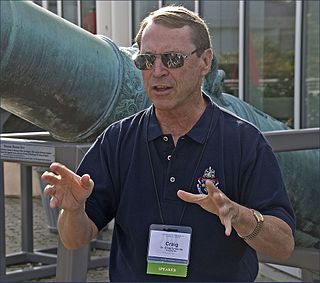 W
WCraig Lee Symonds is the Distinguished Visiting Ernest J. King Professor of Maritime History for the academic years 2017–2020 at the U.S. Naval War College in Newport, Rhode Island. He is also Professor Emeritus at the U. S. Naval Academy where he served as chairman of the history department. He is a distinguished historian of the American Civil War and maritime history. His book Lincoln and His Admirals received the Lincoln Prize. His book Neptune: The Allied Invasion of Europe and the D-Day Landings was the 2015 recipient of the Samuel Eliot Morison Award for Naval Literature.
 W
WWilliam Watson was an author and soldier in the Confederate States Army during the American Civil War. He is most noted for an autobiographical book Life in the Confederate army, being the observations and experiences of an alien in the South during the American Civil War (1888) that he wrote after the war chronicling his army life.
 W
WRussell Frank Weigley (WY-glee) was the Distinguished University Professor of History at Temple University in Philadelphia, Pennsylvania, and a noted military historian. His research and teaching interests centered on American and world military history, World War II, and the American Civil War. One of Weigley's most widely received contributions to research is his hypothesis of a specifically American Way of War, i.e. an approach to strategy and military operations, that, while not predetermined, is distinct to the United States because of cultural and historical constraints.
 W
WRonald C. "Ron" White is an American historian, author, and lecturer. He has written bestselling and award-winning biographies and books on Abraham Lincoln and Ulysses S. Grant. He is a senior fellow at the Trinity Forum.
 W
WHenry Wilson was the 18th vice president of the United States from 1873 until his death in 1875 and a senator from Massachusetts from 1855 to 1873. Before and during the American Civil War, he was a leading Republican, and a strong opponent of slavery. Wilson devoted his energies to the destruction of the "Slave Power" – the faction of slave owners and their political allies which anti-slavery Americans saw as dominating the country.
 W
WComer Vann Woodward was a Pulitzer-prize winning American historian focusing primarily on the American South and race relations. He was long a supporter of the approach of Charles A. Beard, stressing the influence of unseen economic motivations in politics. Stylistically, he was a master of irony and counterpoint. Woodward was on the left end of the history profession in the 1930s. By the 1950s he was a leading liberal and supporter of civil rights. His demonstration that racial segregation was a late-19th-century invention rather than some sort of eternal standard made his The Strange Career of Jim Crow into "the historical Bible of the civil rights movement", said Martin Luther King Jr. After attacks on him by the New Left in the late 1960s, he moved to the right politically.